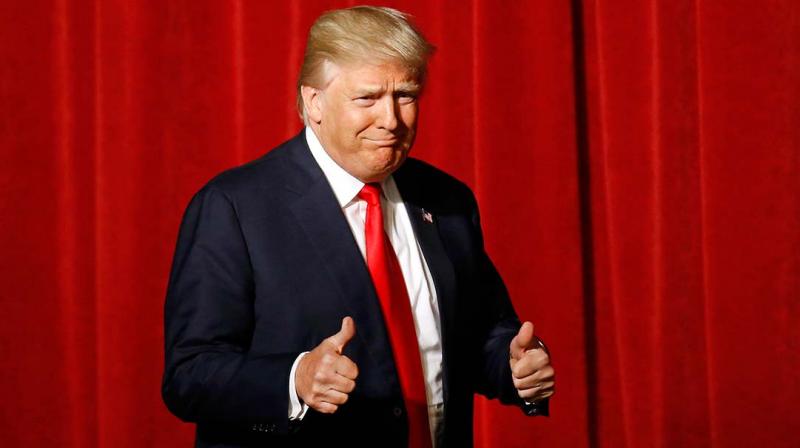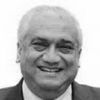West Asia can't look up to Donald Trump
Countries in West Asia have little reason for enthusiasm

As the election results affirmed his victory, President-elect Donald Trump was conciliatory: He promised to be the President of all Americans, applauded Hillary Clinton’s services to her country and assured the international community he would work with it constructively. Thousands of young Americans were not convinced; they took to the streets and shouted: “No Trump! No KKK! No Fascists US.” The era of America at war with itself has just begun as a highly divisive and controversial person, with no experience of government, prepares to assume the reins of what is often referred to as the most powerful nation on earth. The election campaign just behind us is not reassuring about what we can expect from the new government. It exposed the US’ deep polarisation that Mr Trump himself robustly promoted, taking aggressive positions on emotional issues like race, immigration and Muslims.
The commentator, Gordon Robison, described this as “open bigotry”. The Republican Party stalwart Peter Wehner decried the Trump campaign for its anti-intellectualism, its “war with reason” and its xenophobia, while Frank Bruni saw “epic ugliness” in Mr Trump’s rhetoric and the “fierce currents of resentment” it had unleashed. Robert Gates, secretary of defence under George W. Bush and Barack Obama, viewed Mr Trump as “beyond repair”. The election has exposed the serious fissures in the nation — on the economy, on gender and minority issues, even on the very idea of the US as an accommodative, tolerant and progressive nation. However, millions of people excluded from their country’s success narrative, the under-educated and unemployable white males, saw a saviour in Mr Trump, even as Ms Clinton was viewed as consorting with Wall Street and corporate America.
Since the campaign was mostly about character rather than policy, hardly anything is known about international relations under Mr Trump. What is known is not comforting: He spouted deep suspicion of foreign interactions and highlighted fear and rage against foreigners in general. Islamophobia shaped much of his understanding of the Muslim world, which he frequently conflated with terror: He believed Arab Americans had cheered the 9/11 attacks and advocated surveillance of mosques and tracking of Muslims, restrictions on the entry of Muslims into the US, removal of Syrian migrants from the country, and the harshest possible reprisals against terrorists and their family members. The Dubai-based Khaleej Times responded to the Trump victory with the headline: “Muslim world in shock”.
Countries in West Asia have little reason for enthusiasm. Mr Trump expressed admiration for Saddam Hussein and Muammar Gaddafi for what he thought was their firm stand against terrorism. He also believes that President Vladimir Putin is a “strong leader” and has applauded the Russian intervention in Syria as a counter-terrorism initiative. Through the campaign he was severely critical of Iran’s emergence as a “regional power” and of the nuclear agreement he holds responsible for it. But he also included Saudi Arabia among countries such as Germany and Japan that need to assume a fairer share of the burden for their own defence, ignoring the billions of dollars of weapons that the Gulf Cooperation Council (GCC) countries have purchased from the US.
Many GCC countries have been critical of the Obama presidency for its lack of leadership and its withdrawal from the region during a period of widespread contention and conflict. Now, given Mr Trump’s avowed hostility to Iran, some regional players might seek from the President an understanding of their interests and sympathy for their concerns. This would be wishful thinking: the ongoing contentions are so convoluted that it is difficult to see what useful contribution the new President, with his record of ignorance and prejudice, can make.
Syria, for instance, has attracted several players to its battlefields, with hardly any consensus amongst them on their long-term interests. While Saudi Arabia prioritises regime change, its partner Turkey is intent on curbing Kurdish aspirations even as Turkey and Qatar support Muslim Brotherhood-affiliated groups that are anathema to the Kingdom which, in turn, backs jihadi groups. Iran is backing the Assad regime in alliance with Russia, about which Mr Trump has expressed positive sentiments. These contentions have ensured the death of nearly half a million Syrians, the destruction of major cities, the displacement of millions, and the strengthening of various jihadi militia in the country.
The Yemen situation is no better. While the Saudis wish to defang the Houthi militia and restore the government of President Abdrabbuh Mansur Hadi, the Houthis are agitating for their place in the government in Sana’a, and are backed in this by forces loyal to former President, Ali Abdullah Saleh, and possibly Iran. The UN remains a helpless bystander, coming up with peace plans that garner little support, while the Yemenis continue to suffer the consequences of war and destruction and Al Qaeda and ISIS elements continue to flourish. In Iraq, the Haider al-Abadi government has put together a temporary coalition of national, Shia and Sunni fighters to liberate Mosul from ISIS. But it is the aftermath of the liberation that will decide whether Iraq emerges as a united and pluralistic state where all its diverse peoples enjoy a place of dignity, or whether it will remain a bastion of ethnic and sectarian competition and distrust.
Much of what has gone wrong in West Asia is due to the US’ destructive military interventions and its divide-and-rule policies that have left countries in conflict, their people divided, and West Asia unstable and insecure. There is nothing in Mr Trump’s background that would suggest he can contribute to bringing peace and camaraderie in the region. This, in fact, could be an excellent opportunity for regional powers to set their house in order through their own efforts. They can and should address the issues that foster distrust and, in time, build mutual confidence and shape initiatives to address concerns that they share: internecine conflicts, extremism and energy interests. They should recognise that the answers to these challenges lie not in Washington but at home.

